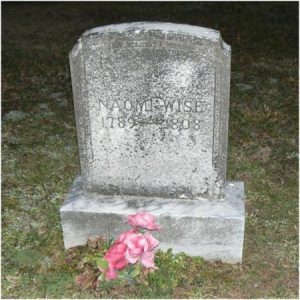Naomi Wise
Naomi Wise
 (Naomi Wise wasn't an Allred, but she had ties to the Allred family since she was killed by the nephew of Stephen Lewis. Lewis raped Lydia Allred on October 30, 1786. Naomi's story is as tragic as it is interesting. Locals still talk of her murder...........and they say at night she can sometimes be heard crying along the banks of the river where she died.)
(Naomi Wise wasn't an Allred, but she had ties to the Allred family since she was killed by the nephew of Stephen Lewis. Lewis raped Lydia Allred on October 30, 1786. Naomi's story is as tragic as it is interesting. Locals still talk of her murder...........and they say at night she can sometimes be heard crying along the banks of the river where she died.)